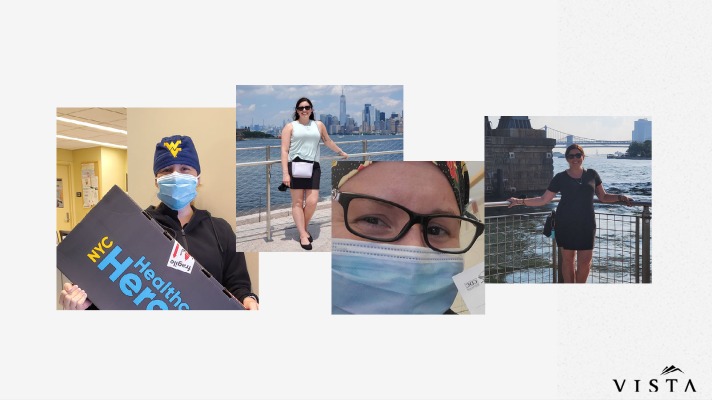How to Supercharge Your Healthcare Career During Match Week

Becoming a healthcare provider is an exciting prospect for medical school graduates, and there’s no more exciting time during a future clinician’s career than Match Week. That’s when medical students find out what residency program they’ll be entering upon graduation. Let’s take a closer look at what to expect as you head into the next step in your medical career.
What is Match Week?
Match Week is the nickname for The National Resident Matching Program (NRMP) (better known as The Match). During residency program matching, medical graduates are faced with tough, important decisions. It’s a time of positivity and opportunity, but it can also be a bit nerve-wracking as well. Many get chosen. Some have options, while others don’t get selected — at least not on the first run.
Monday is when candidates who have applied to the program find out if they were matched. This is known as the Main Residency Match, and not every student receives a match at this time. Graduates still may receive a match through the Supplemental Offer and Acceptance Program (SOAP), which occurs after the Main Residency Match conclusion.
Friday is the big day (known as “Match Day”) when all matches are announced — including those made as part of both the Main Residency Match and SOAP.
What steps does a medical school graduate have to take to be matched?
First, potential residents must apply. The Match is overseen and managed by the NRMP and its Registration, Ranking, and Results system. They have an algorithm that matches candidates with the right programs. NRMP has a detailed video outlining the process. From there, a medical school grad needs to see if they get matched on “Match Day.” If not, they may get matched through SOAP.
SOAP has eight rounds of offers, so there are plenty of exciting and fulfilling openings at this stage. The Main Residency Match isn’t the only time when students can find a specialty that fits them — plenty of great options are available past the initial stage.
A medical school graduate’s main step to be matched is being ready for a commitment. Once you accept an offer, it’s binding, so be sure you do your homework before saying yes.
What steps do hospitals take to get top residents?
Each healthcare system defines its standards and criteria. They also partner with NRMP to determine their needs and requirements and ensure they’re matched with the right candidate. Some residency programs are more competitive than others, depending on what type of clinician the program supports and the popularity of those positions among medical students.
Competition can make it a bit harder to be accepted into the residency program you prefer. That’s why it’s smart to enter the process with a few options in mind if your initial one doesn’t work out.
What are some tips/best practices for getting matched with the residency program of your choice?
Most of the work you do to get matched with the right residency program is done when you’re in medical school. Generally speaking, the better your grades, the better chances you’ll have at getting into more residency programs.
Becker’s Hospital Review released a report on what you can do if you don’t get matched. They provided four pieces of advice for prospective students looking for the right fit:
- Remember that there is still a physician shortage, despite candidates being unable to get a residency. That means there’s still cause for optimism if you don’t get matched. There are always opportunities available. You may just need to adjust your expectations or skillset.
- Hospitals often use software with strict filters to review residency program candidates quickly. Some of these criteria can include low test scores, the amount of time it’s been since you graduated medical school, and your status as an international or domestic student. Maintain awareness of this as you attempt to get matched.
- While established criteria can seem challenging, some residency program leaders are thinking outside the box. For some, diversity of background and geography are also important. Grades aren’t always the only determining factor.
What do you do if you don’t get matched?
If you don’t get matched right away, don’t be discouraged. Remember that getting a residency can take time. The American Medical Association recommends that if you’re having issues getting matched, you:
- Get involved in the field. Look for a job in a clinical setting.
- Grow your network. Stay in touch with your medical school and ask your dean or other staff for assistance or advice.
- Get licensed. Take the U.S. Medical Licensing exam.
- Not getting matched can be challenging, but it’s all about keeping a positive mindset. Don’t look at it as a setback, but as an opportunity to find the right career.
How to take the next step in your medical career?
Even after you get matched, there is still the matter of preparing for your residency. You’ll want to understand what kind of challenges you might face, how to handle the workload, and any other best practices for being effective at your job. Download our eBook titled “10 Tips from Experienced Professionals to Get You Started on Career-Buildings Basics” that will help you get ready to tackle your residency head-on.
After you’ve completed your residency, VISTA wants to be your resource when entering the healthcare workforce. VISTA has the tools to place you in a role that will get you the experience you need for a long and fulfilling career in medicine.









